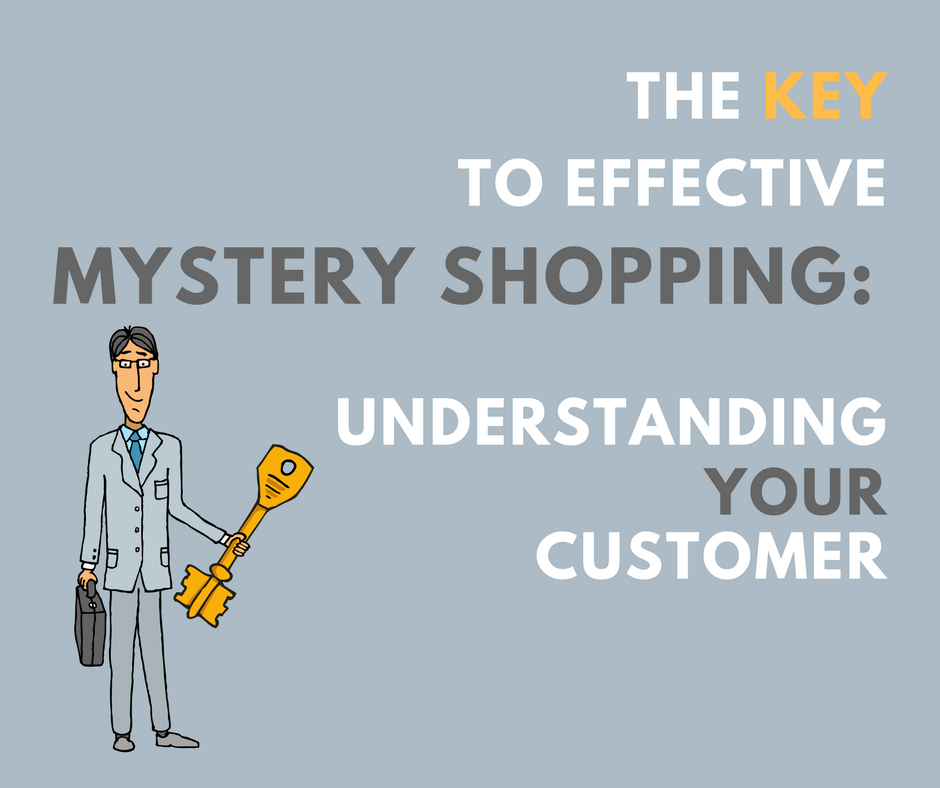What Online Mystery Shopping Reveals About Your Digital CX
Thousands of customers visit you online every day. Some can’t find what they need. Others hit errors, confusing apps, or unclear support loops. Many...
6 min read
 Sarah Beckett
June 25, 2024
Sarah Beckett
June 25, 2024

It's a common misconception that Mystery Shopping, Customer Feedback Surveys, and Reputation Management all deliver the same insights into the customer journey. This belief can result in overlooking important aspects of the customer experience.
Although these three CX methods are designed to measure the quality and effectiveness of customer interactions, each of them offers unique insights into customer behaviors and preferences from different angles.
In this blog, we’ll take a closer look at how each method plays a vital role in uncovering strategic insights into customer interactions.
TL;DR
Curious to learn more? Keep reading!

Mystery Shopping is about collecting unbiased, third-party feedback on the execution of brand standards. Mystery shoppers visit locations to evaluate specific requirements, helping brands identify gaps in the execution of brand or operating standards.
It provides qualitative and quantitative feedback on areas like:
Unlike customer feedback surveys, the data collected from the mystery shop visits evaluates how well brand standards are being met rather than gathering insights on how customers feel about or perceive their interaction with a brand.
This is a major benefit of mystery shopping initiatives. Brand leaders can analyze the data, draw conclusions based on this information, and make informed decisions moving forward.
Click here to learn more about our Mystery Shopping Program.
Customer Feedback Surveys are a great way to collect insights on how satisfied customers are with the overall experience with a brand. They are used to determine what customers like or dislike about products or services and how they feel about an interaction.
They are considered a Solicited Customer Feedback since businesses actively look to gather insights directly from the source: the customer. Common methods include online surveys, feedback forms, and customer interviews.
Customer feedback surveys go beyond gathering data on customer interactions to capture feelings and perceptions regarding brand standards.
With surveys, brands also have the opportunity to obtain details on the customer experience that can help identify specific issues and dive deeper into OSAT and NPS based on product/order/experience.
For example, imagine a restaurant brand conducting customer feedback surveys as part of its CX program, and 'food quality' consistently receives low scores.
To understand why this is happening, the brand can run a mystery shopping program to identify areas in their operations that may impact customer satisfaction.
Through this mystery shopping program, restaurant operators can:
Another important aspect of customer feedback surveys is that they provide customers with an opportunity to share their thoughts before they are shared online.
By giving customers a chance to voice their opinions in a controlled environment, businesses can proactively address customers' complaints and improve overall customer satisfaction.
Other key benefits of customer feedback surveys include:
Click here to learn more about our Survey Tool.
Reputation management involves monitoring how customers engage with and talk about brands online, especially with the increasing influence of online reviews and social media.
Unlike customer feedback surveys, reputation management is considered Unsolicited Customer Feedback since customers freely express their opinions without any prompting.
With the rise of technology, especially with AI-powered platforms, brands can dive deeper into online reviews and social media mentions. These tools can monitor online conversations to gauge the sentiment surrounding the brand and extract valuable insights from online interactions.
Moreover, they help brands build trust by ensuring that customers feel heard, assisting in crafting automated responses through AI messages, templates, or personalized messages.
Other benefits of reputation management for businesses include:
When bringing together mystery shopping, customer feedback surveys, and reputation management, brands create a powerful feedback loop that helps constantly improve and adapt.
Each method provides leaders with valuable insights into different parts of the customer journey, and when combined, their effectiveness is even greater.
By addressing the issues identified through mystery shopping, brands can improve service delivery, staff training, and operational efficiency, leading to better customer reviews and higher satisfaction scores.
Over time, this translates into increased customer loyalty, positive word-of-mouth, and improved business outcomes.
Insights From The Field
A study conducted by our team of analysts revealed a strong, positive impact of mystery shopping programs on customer satisfaction, especially when it comes to cleanliness and friendliness.

By comparing mystery shopping data with survey responses, we found that higher cleanliness ratings often lead to higher Overall Satisfaction (OSAT) scores. This correlation was consistent even in the surveys submitted the next day.
The same happened with friendliness. When mystery shoppers reported having friendly interactions with employees, the surveys submitted by real customers on the same day and up to 2 days after also reported higher OSAT scores.
The insights from this study show that brand leaders can leverage data from both mystery shopping and customer feedback surveys to proactively address key touchpoints, making sure operations meet the brand standards and consistently provide a great customer experience.
By proactively addressing issues identified through mystery shopping, brands can prevent negative experiences that lead to poor online reviews.
Additionally, franchises and multi-location businesses can benefit greatly from combining mystery shopping and reputation management, as maintaining consistent experiences and operational standards can be challenging in this kind of business model.
Mystery shopping allows these businesses to evaluate various sites, ensuring each location meets the same high standards. This consistency is essential for brand reputation, as customers expect the same quality of service regardless of where they interact with the brand.
Moreover, mystery shopping can uncover potential issues such as non-compliance with regulations. Identifying these problems early allows businesses to address them before they escalate into more severe issues that could harm the brand's reputation or result in business loss.
Insights From The Field
A recent study from our team of analysts investigated the relationship between mystery shopping and reputation management.

By looking at mystery shop responses and Google reviews from the same day for specific locations, we uncovered four key insights:
Cleanliness and Appearance
When mystery shoppers reported clean and well-stocked restrooms, review scores for that day were, on average, 8% higher. Clearly, store cleanliness significantly impacts customer perception.
Check-out/ Cashier Experience
Efficient and friendly service can be a game-changer in customer experience.
Our findings revealed that when cashiers greeted or acknowledged mystery shoppers, review ratings soared by nearly 15%.
Additionally, shorter lines at staffed registers (fewer than four customers) resulted in a 16.4% improvement in review ratings.
Additional Employee Interaction
When employees delivered exceptional service, there was a slight increase in ratings.
However, only a small percentage of mystery shoppers reported a 'WOW' experience, which suggests there is potential for a positive impact on reviews when customers experience exceptional service.
Perishable foods
On days when perishable foods appeared fresh, average review ratings were over 7% higher. This highlights the direct correlation between product quality and customer satisfaction.
The insights from this study show that mystery shopping is a powerful tool for brands to address customer needs proactively.
By leveraging mystery shopping data, brands can gain valuable insights into how their operations directly influence customer experiences and, ultimately, review ratings.
This proactive approach enables brands to identify areas for improvement, prioritize customer-centric initiatives, and cultivate a positive reputation that resonates with their audience.
Integrating mystery shopping, customer feedback surveys, and reputation management into a unified customer experience strategy is crucial for businesses aiming for customer experience excellence.
Integrating these components ensures brands remain customer-focused, prioritizing customer needs and expectations at every level. This leads to enhanced customer satisfaction, loyalty, and long-term business success.
Need help connecting the dots of your customer experience (CX) initiatives? Visit our  and learn how we can help.
and learn how we can help.

Thousands of customers visit you online every day. Some can’t find what they need. Others hit errors, confusing apps, or unclear support loops. Many...

Client: “We’ve put a lot into customer experience, but it’s hard to know what’s really happening across all our locations. We’ve been looking at...

Have you ever been in a situation where you ask a question only to receive an answer that isn’t what you were looking for? Maybe you didn’t ask the...